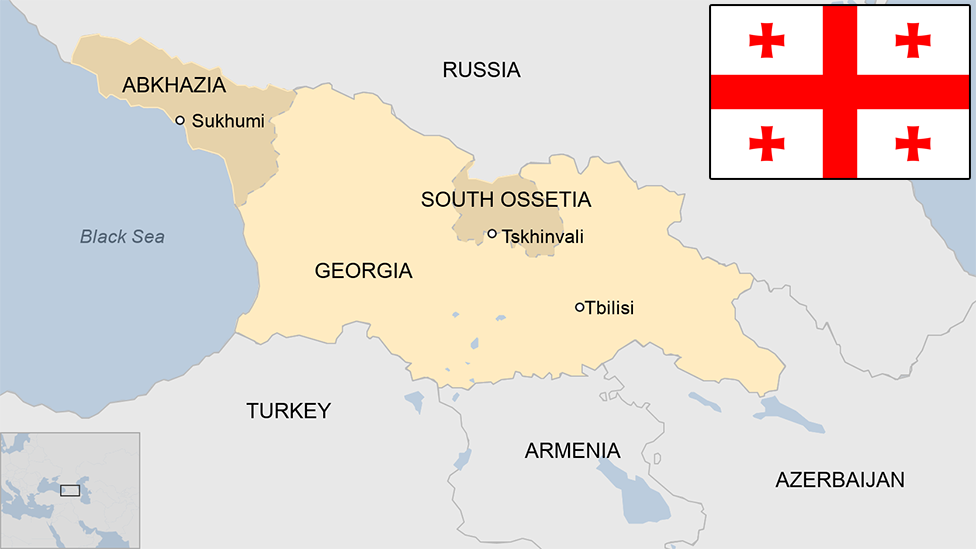Crimea profile
- Published
This page is no longer being updated. It was last updated on 31 July 2023

Crimea lies on a peninsula stretching out from the south of Ukraine between the Black Sea and the Sea of Azov. It is separated from Russia to the east by the narrow Kerch Strait.
Internationally recognised as part of Ukraine, it has been under Russian occupation since 2014 after Ukraine's then pro-Moscow president Viktor Yanukovych was driven from power by violent protests in Kyiv.
Kremlin-backed forces invaded the Crimean peninsula, and the territory, which has a Russian-speaking majority, voted to join Russia in a referendum that Ukraine and the West deem illegal.
Read more country profiles, external - Profiles by BBC Monitoring, external
MEDIA
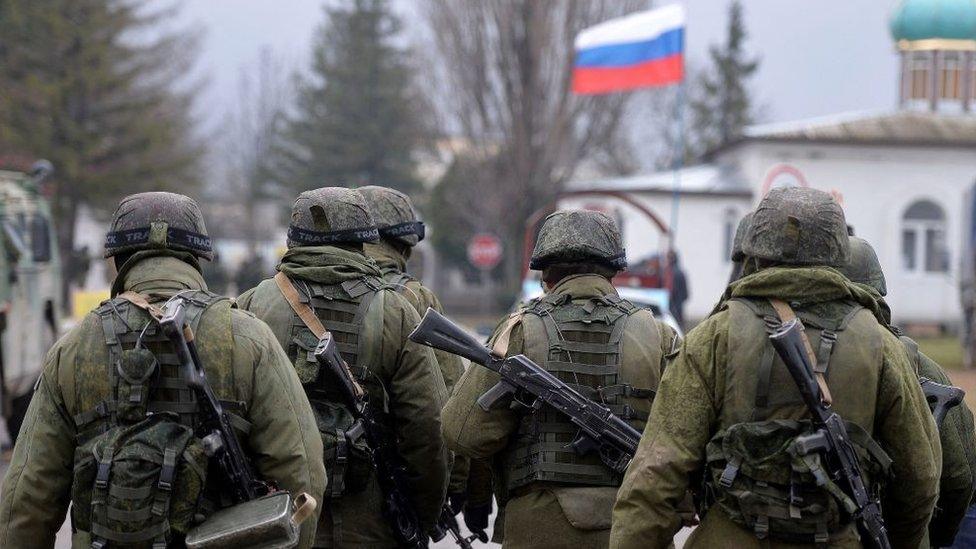
Russian soldiers on patrol following Russia's invasion of Crimea in 2014
Pro-Russian media dominate the Crimean media, with most of their pro-Ukrainian counterparts having been pushed out since the 2014 annexation.
Reporters Without Borders (RSF) says there has been an increase in repression in the Crimean peninsula since Russia launched its full-scale invasion of Ukraine in 2022 - an increase documented in reports by local NGOs.
Access to radio in the occupied territories or areas of military activity is patchy, as Russia has been jamming Ukrainian FM stations in Crimea and the occupied Donetsk and Luhansk regions since 2014.
Ukrayinske Radio, external launched its own project in the Crimean Tatar language in May 2022 on 100.7 FM and 549 kHz AM, ostensibly covering almost all of Crimea.
Press/online
Krymskaya Pravda, external - pro-Russian daily
Avdet, external - Tatar weekly
Kryminform, external - news agency
Sobytiya Kryma, external - pro-Ukrainian news site
Television
ATR, external - Tatar-owned, broadcasts from Kyiv
Radio
Meydan FM, external - Tatar
HISTORY
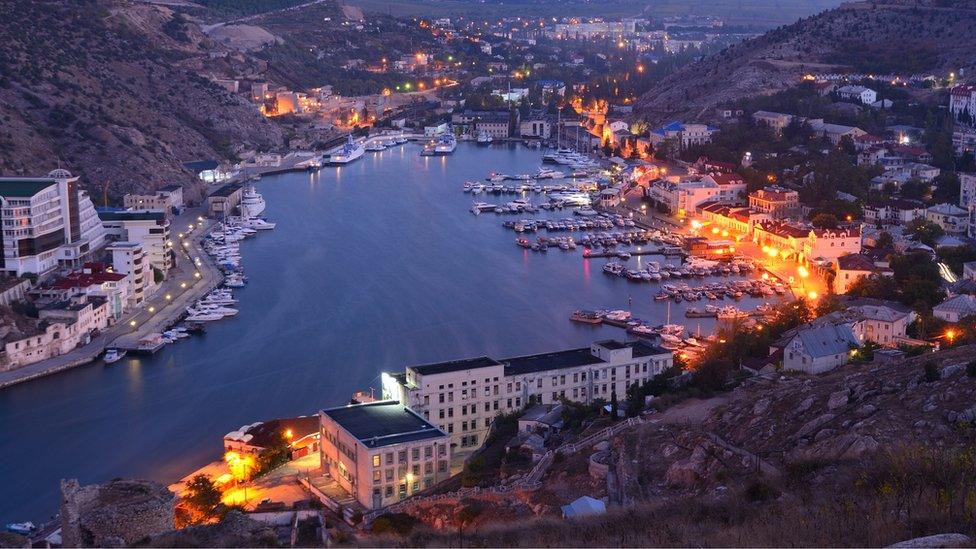
Sevastopol is the largest city in Crimea and a major Black Sea port
Crimea was annexed by the Russian Empire during the reign of Catherine The Great in 1783 and remained part of Russia until 1954, when it was transferred to Ukraine under the then Soviet leader Nikita Khrushchev.
Ethnic Russians make up the majority of the population, but with significant Ukrainian and Crimean Tatar minorities.
Under Greek and Roman influence for centuries, in 1443 Crimea became the centre of a Tatar Khanate, which later fell under Ottoman control.
Rival imperial ambitions in the mid-19th Century led to the Crimean War when Britain and France, suspicious of Russian ambitions in the Balkans as the Ottoman Empire declined, sent troops.
Given autonomous republic status within Russia after the Bolshevik revolution, Crimea was occupied by Nazi Germany following Hitler's invasion of Russia in June 1941.
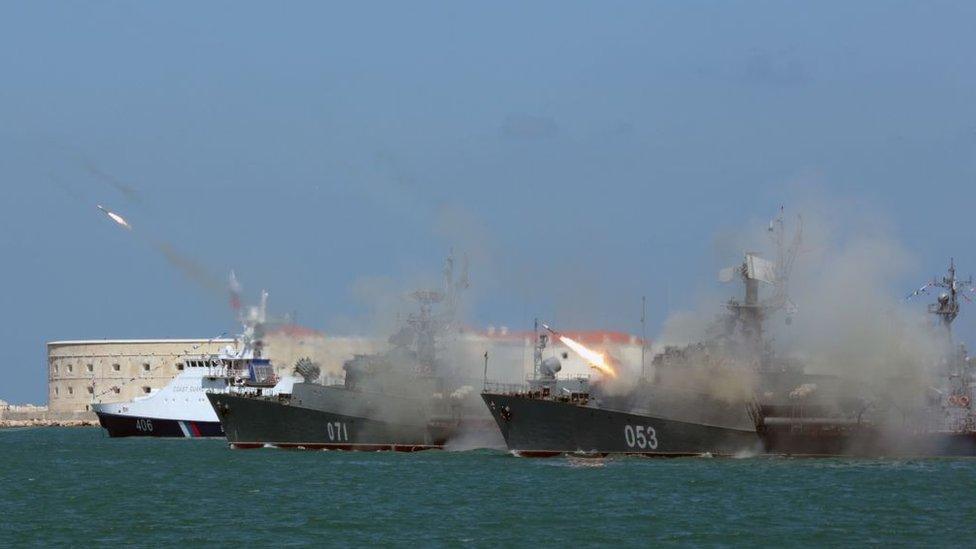
Russian frigates firing missiles during Navy Day celebrations in Sevastopol: the port has been a major Russian naval base for more than 200 years
Stalin accused the Tatars of collaborating with the German occupiers and deported them to Central Asia and Siberia in 1944. Many did not survive.
Only as the Soviet Union collapsed in 1991 were they allowed to return. By the time over a quarter of a million did so in the early 1990s, it was to an independent Ukraine where they faced very high unemployment and extremely poor housing conditions.
There were persistent tensions and protests over land rights, and allocation of land to Crimean Tatars was a contentious issue.
After Ukrainian independence, political figures from the local Russian community sought to assert sovereignty and strengthen ties with Russia through a series of moves declared unconstitutional by the Ukrainian government.
The 1996 Ukrainian constitution stipulated that Crimea would have autonomous republic status, but insisted that Crimean legislation must be in keeping with that of Ukraine.
Crimea has its own parliament and government with powers over agriculture, public infrastructure and tourism.
The Crimean Tatars have their own unofficial parliament, the Mejlis, which states its purpose as being to promote the rights and interests of the Crimean Tatars.
The port of Sevastopol is a major naval base and has been home to the Black Sea Fleet since 1783. Following the collapse of the USSR, the fleet was divided up between Russia and Ukraine.
The presence of the Russian fleet in Sevastopol was a focus of tension between Russia and Ukraine. In 2008, Ukraine - then under the pro-Western President Viktor Yushchenko - demanded that Moscow not use the Black Sea Fleet during the its war with Georgia.
Both countries had agreed to allow the Russian fleet to stay until 2017, but after the election of the pro-Russian Viktor Yanukovych as president in 2010, Ukraine agreed to extend the lease by 25 years beyond 2017, in return for cheaper Russian gas.
In 2022, President Volodymyr Zelensky cemented Ukraine's goal of liberating all its territories, including Crimea, in a peace formula he presented at the G20 summit in Bali.
In 2022 and 2023, the strategic Kerch bridge - actually a pair of bridges - which link Crimea to Russia's Taman peninsula across the Sea of Azov came under repeated Ukrainian attack.
It is one of the key ways Moscow can reinforce its troops in Crimea and the southern Kherson region and logistics hubs across Russian-occupied territory have been repeatedly hit using long-range weapons supplied by Ukraine's Western backers.
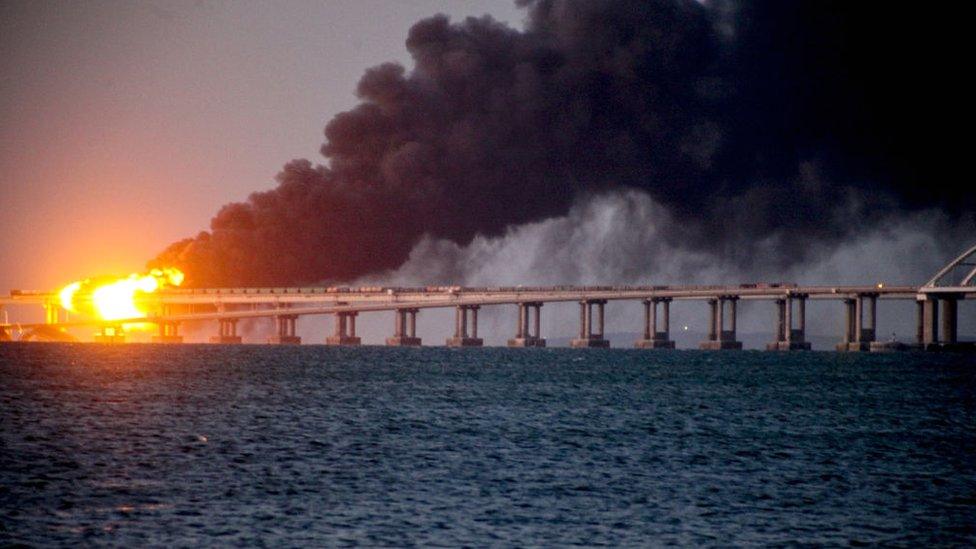
A fire following an attack on the Kerch bridge, October 2022
Related topics
- Published18 December 2024
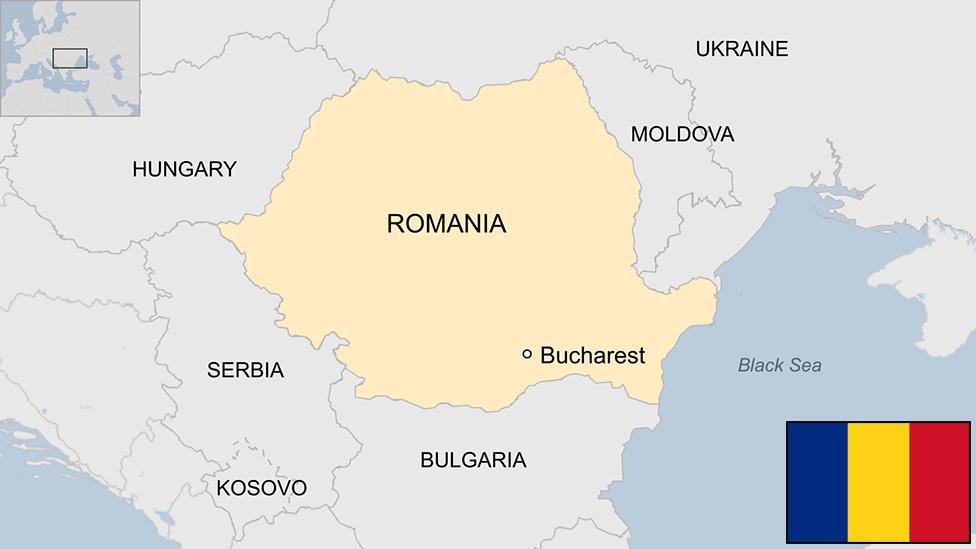
- Published4 November 2024
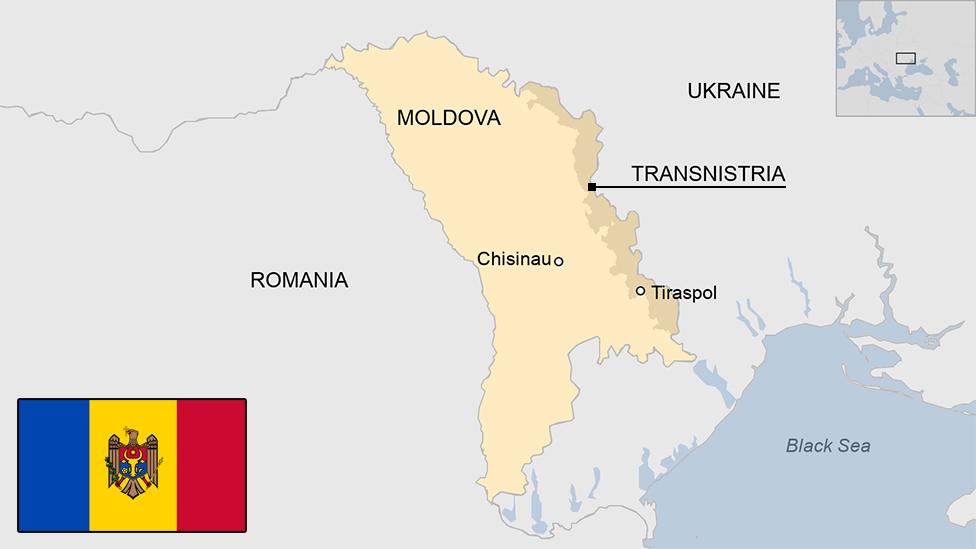
- Published25 October 2024

- Published27 January
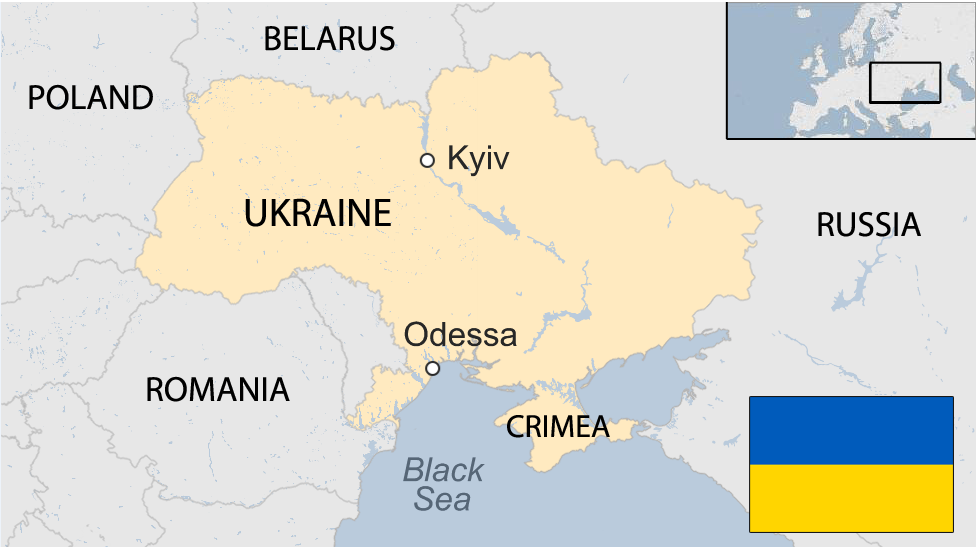
- Published25 March 2024

- Published31 December 2024
